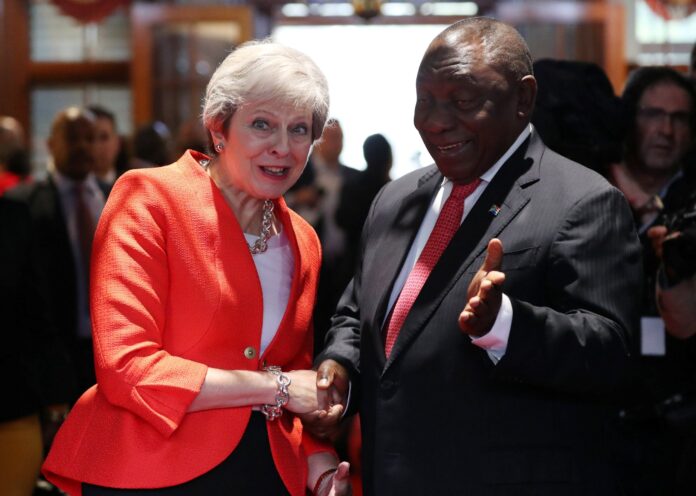Southern African countries and some non-regional member countries have been engaged in talks on post Brexit agreement with the United Kingdom.
South Africa’s trade and industry minister, Rob Davies, and his SACU counterparts from Lesotho, Namibia, Eswatini and Botswana, as well as non-SACU Mozambique, are in the talks.
The countries could not reach an agreement last week with the UK’s minister of state for trade policy, George Hollingbery.
The talks last week held in Botswana and the date fixed for Brexit is 29 March, although UK prime minister Theresa May has asked for an extension.
Davies said the major issue is at stake is “cumulation”- this allows countries to process imported materials and them label them as their own.
The rules of origin exist to ensure the benefit of preferential access goes to the countries that are party to a free trade agreement, he explained.
Because South Africa is in a trade deal called an Economic Partnership Agreement (EPA) with the EU, and because the UK will leave the EPA when it leaves the European Union, problems have emerged.
“The EPA does not provide for cumulation on the basis being advanced by the UK, namely full cumulation with EU material, especially when the EU material is subjected to a higher duty when exported to SACU and Mozambique than when the material is exported from the UK. SACU and Mozambique are unable to give any better treatment to the UK than the EU,” Davies said.
In terms of trade with the UK, a new agreement will replace the existing EPA when the country leaves the EU.
The UK is South Africa’s biggest trading partner within the EU, with total trade between the two countries in 2017 amounting to R70.6bn, excluding gold. 18% of South Africa’s exports to the EU go to the UK and 10% of its imports come from the UK.
The UK is South Africa’s its eighth-largest trading partner globally.
The UK has published a schedule of tariffs that would apply if it left the EU without an agreement. Some items – such as fruit and vegetables – would be duty-free.
But among the 469 tariff lines attracting duty would be products that South Africa exports, and the UK would in some cases be charging more than the EU.
The big one for South Africa is the auto sector, which
Davies outlined three scenarios for SACU countries and Mozambique, depending on UK prime minister Theresa May’s ability to get Brexit through parliament:
More
https://www.theafricareport.com/10654/brexit-sprint-for-south-africa/




